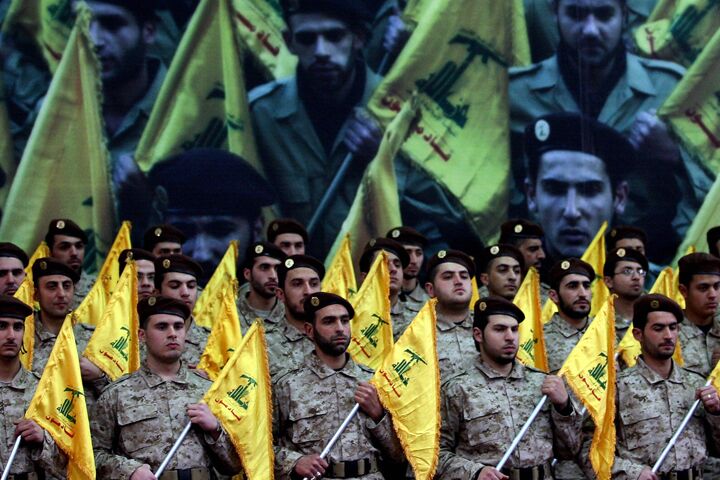
Hezbollah Is Back
Hezbollah’s arsenal is much bigger and deadlier today than it was during the Second Lebanon War three years ago, say Israeli, United Nations and Hezbollah officials. The Iranian-created and -sponsored terrorist organization reportedly has up to 40,000 rockets, and is training fighters to use ground-to-ground missiles that can reach as far as Tel Aviv.
Last month, Hezbollah accidentally detonated a huge ammunition bunker 12 miles from the Israeli border. The head of the UN peacekeeping mission in Lebanon said the explosion showed a serious violation of UN Resolution 1701, which bans Hezbollah from stockpiling weapons. Also in July, according to an Italian newspaper, a deadly plane crash in Iran was caused by explosive devices being delivered to Lebanon from Iran.
Hezbollah’s growing firepower in southern Lebanon is causing Israel to adjust its military maneuvers. Its planes now fly higher and its ships stay farther out at sea for fear of becoming easier targets for longer-range missiles.
Brig.-Gen. Alon Friedman, the deputy head of the Israeli Northern Command, told the Times that the Israel-Lebanon border could “explode at any minute.”
In Lebanon’s capital, Beirut, Hezbollah is also working behind the scenes to cement itself an influential role in Lebanese politics. Last week, Walid Jumblatt, leader of the influential Druze group the Progressive Socialist Party, threatened to quit the majority coalition, which may open the door for Hezbollah to woo the Druze leader.
Jumblatt recently backed away from his traditional hostility toward Syria, telling a Tunisian magazine: “I intend to fix my relationship with Damascus my own way. Looking back, I think I committed the sin of voicing too many anti-Syrian slogans.” Such remarks are music to the ears of Hezbollah.
Jumblatt is a canny politician. “He has always represented a weathervane of regional politics,” said Amal Saad-Ghorayeb, author of the forthcoming book The Iran Connection: The Alliance with Syria, Hezbollah and Hamas. It is most likely that Jumblatt is moving away from Lebanon’s pro-Western forces in favor of Iran, Syria and Hezbollah because he senses momentum swinging in the direction of the latter groups as America’s influence in the region wanes.
Whether or not Jumblatt aligns himself with Hezbollah, bolstering the terrorist organization’s political standing in Beirut, one thing is for sure: Militarily, Hezbollah is firmly rooted in southern Lebanon, and is ready to strike Israel. Not only that, but Hezbollah is also gaining more sway over the Lebanese Army.
A Stratfor source reports that Hezbollah security chief Wafiq Safa has vastly increased his authority over all Shiite officers in Lebanon’s military. Safa now has input concerning all appointments, promotions and deployments of these officers. He also reportedly has an arrangement with the Lebanese Army command whereby he is informed of all the army’s movements and plans. “Hezbollah has been steadily building up influence over the weak and fractured Lebanese military,” reports Stratfor; “now, it appears this influence has translated into direct authority over the army’s Shiite contingent” (August 5). Almost a third of Lebanon’s armed forces are Shia. Stratfor sources in the Lebanese military admit “that the army has neither the capability nor the will to stand up to Hezbollah” (ibid.). The army in fact appears to be developing into an auxiliary force attached to Hezbollah.
This means that should hostilities break out between Hezbollah and Israel, Hezbollah won’t have anything to fear from the Lebanese military—which is not in the habit of standing up to the terrorist group in any case.
As tensions mount on the Lebanese-Israeli border, watch Iran closely. That is where Hezbollah’s order to strike Israel will come from.
